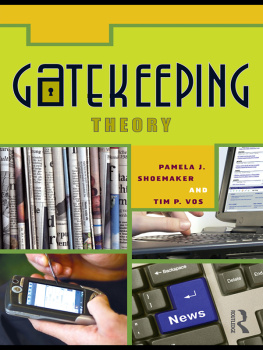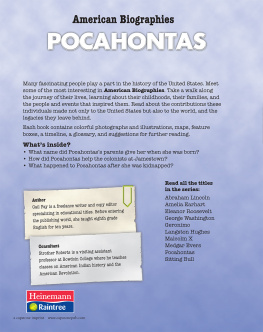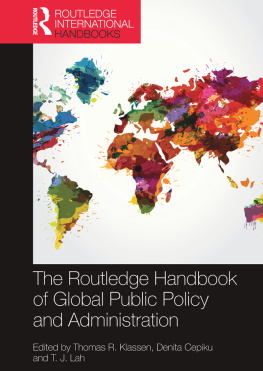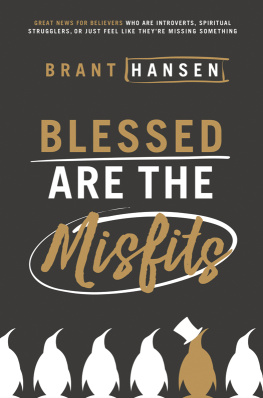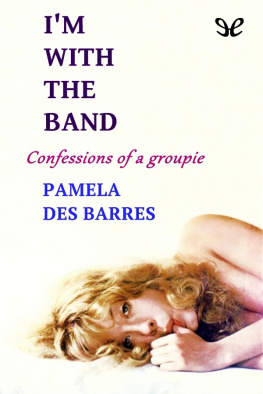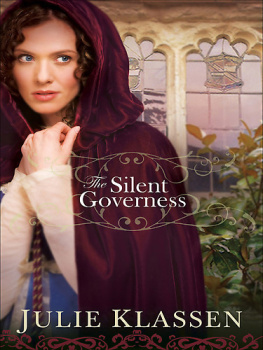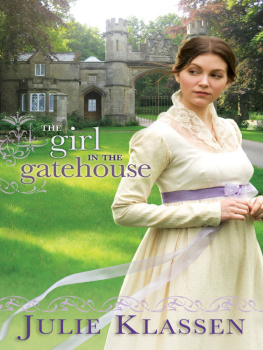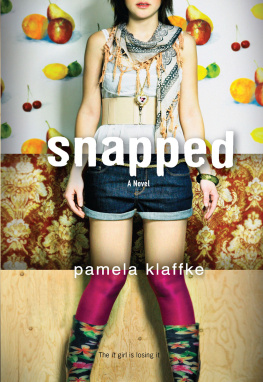BLESSED EVENTS
PRINCETON STUDIES
IN CULTURAL SOCIOLOGY
------------------------------- EDITORS--------------------------------
Paul J. DiMaggio
Michle Lamont
Robert J. Wuthnow
Viviana A. Zelizer
Origins of Democratic Culture: Printing, Petitions,
and the Public Sphere in Early-Modern England
by David Zaret
Bearing Witness: Readers, Writers,
and the Novel in Nigeria
by Wendy Griswold
Gifted Tongues: High School Debate and Adolescent Culture
by Gary Alan Fine
Offside: Soccer and American Exceptionalism
by Andrei S. Markovits and Steven L. Hellerman
Reinventing Justice: The American Drug Court Movement
by James L. Nolan, Jr.
Kingdom of Children: Culture and Controversy
in the Homeschooling Movement
by Mitchell L. Stevens
Blessed Events: Religion and Home Birth in America
by Pamela E. Klassen
BLESSED EVENTS
RELIGION AND HOME BIRTH
IN AMERICA
Pamela E. Klassen
PRINCETON UNIVERSITY PRESS PRINCETON AND OXFORD
Copyright 2001 by Princeton University Press
Published by Princeton University Press, 41 William Street,
Princeton, New Jersey 08540
In the United Kingdom: Princeton University Press,
3 Market Place, Woodstock, Oxfordshire OX20 1SY
All Rights Reserved
Library of Congress Cataloging-in-Publication Data
Klassen, Pamela E. (Pamela Edith), 1967-
Blessed events : religion and home birth in America / Pamela E. Klassen.
p. cm. (Princeton studies in cultural sociology)
Includes bibliographical references and index.
ISBN 0-691-08797-0 (alk. paper) -
ISBN 0-691-08798-9 (pbk. : alk. paper)
eISBN 978-1-40082-851-7 (ebook)
1. Childbirth at homeReligious aspects. 2. Religion and culture.
I. Title. II. Series.
BL619.K53 2001
291.1'783dc 2001019852
R0
for Magdalene and Isabel
the muscle and the bone gave way
and then I saw your face
now Im a true believer in the existence of grace
Cate Friesen, flesh and bone
Preface _____________________________________
Motherhood Issues
THIS BOOK explores how women in the United States give religious meaning to the act of childbirth. It is at once a portrayal and a commentary on how contemporary womenfrom a wide range of religious identities reflect upon and practice the sacred in their procreative lives. Childbirth, the process of one body becoming two (or more), is an act of creation that leaves echoes in a womans body and memory. In addition to this intimate sphere of body and memory are more public attempts to make meaning from childbirth. Medical and legal discourses, advice books, and even the cautionary tales of experienced women shape cultural perceptions of birth. Spanning the intimate and the public, childbirth has assumed a place alongside similarly politicized motherhood issues ranging from abortion to teen pregnancy. Over the past century North Americans have debated the meanings and practices of childbirth in the context of a society grappling with what it is to bear and raise children in a feminist, or at least feminist-influenced, age. These debates are not motherhood issues in the conventional sense of that phrasethat is, issues that bring forth only sanguine truisms or taken-for-granted agreement. Though without the media profile of other reproductive issues, childbirth has provoked impassioned controversy as many birthing women have critiqued and refused the model of medicalized birth that has become dominant in North America. The rise of midwifery care in hospitals, birthing centers, and homes testifies to the burgeoning success of these womens efforts to transform childbirth.
The varied movements to reform childbirth in North America are not only about politicsthey are not only about who holds the power in birth. They are also fundamentally about the meaning of birth to a womans life and the life of her family and community. Since the early days of the post-World War II natural-childbirth movement in North America and the beginnings of the post- 1960s home-birth movement, the luminaries of these movementspeople like Dr. Grantly Dick-Read, author of Childbirth Without Fear, and midwife Ina May Gaskin, author of Spiritual Midwiferyhave insisted that childbirth contains religious and spiritual meaning. They, and the women who have taken their books to heart, have viewed childbirth as a religious or spiritual process capable of provoking transformation for women, men, and babies alike.
Home-birthing women are an important part of this movement for childbirth reform, while also being part of a wider impulse in their culture that critiques the presuppositions of biomedicinethat is, the models of the body and medicine based on Western understandings of physiology. These women insist that birth is more than a biomedical event by asserting that in addition to being a physiological process, birth is also a religious and spiritual occasion. In their dual positions as childbirth reformers and critics of biomedicine, home-birthing women are what I call postbiomedical bodiesbodies that continue to rely on some aspects of the dominant biomedical model while simultaneously adopting very different models drawn from religion or from alternative therapies.
Given the breadth of childbirth reform, many more women than homebirthers might consider birth to be a religious event and might inhabit postbiomedical bodies, but my choice to look at home birth in particular allows an important vantage point on the fusion of religion and childbirth. Biomedical interpretations of the physical process of birth have largely supplanted the explicitly religious discourse that surrounded childbirth in previous centuries, especially as it moved from the home to the hospital. In contemporary home birth, however, religious discourse has enjoyed a resurgence. The variety of religions women draw from to make meaning of their births mirrors the great variety in North American religion more generally. Those who find home birth a rich source of religious meaning include both feminist and traditionalist Christians and Jews, followers of Goddess spirituality, and women who find spirituality in more informal ways. This religious diversity in the midst of a particular, minority choice of childbirth provokes a host of questions about how such ideologically diverse women think about and experience their bodies, their homes, and their religious convictions.
While considering the interrelationship between childbirth and religion I want to keep in mind two themes. First, I watch for ways that feminist and traditionalist approaches to childbirth collide and conjoin. While some feminists have been decidedly hostile to the idea that childbirth could be a source of female empowerment, others have fought for the reform of childbirth practices as just such a source of empowerment. These latter feminists, however, would not want to claim that bearing children is a necessary goal in every womans life, as some traditionallyor newly orthodoxreligious people might insist. In between the extremes of those viewing childbirth as oppression versus childbirth as destiny are both feminists and traditionalists trying to make meaning from childbirth.



